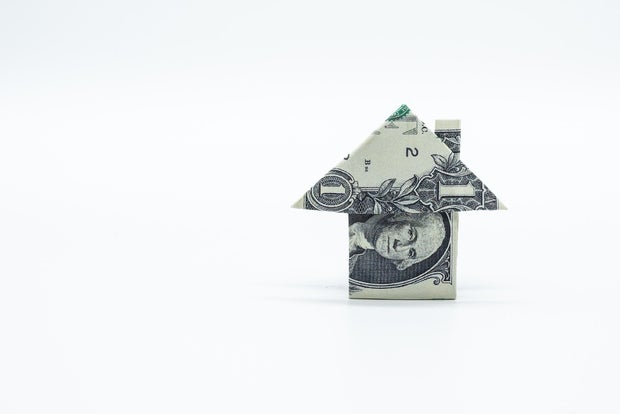Getty Images
The Federal Reserve continues to battle inflation, which has topped 3% for the first three months of 2024. Prices in March increased by 3.5% on an annual basis, suggesting that the stubborn inflation that has dragged down the economy in recent years is still ongoing. With inflation moving in the wrong direction, mortgage rates have ticked up, with the average 30-year mortgage rate now over 7%.
In December, the Fed hinted at multiple interest rate cuts in 2024, likely anticipating softer inflation numbers. At present, the agency has paused interest rates at six consecutive meetings, delaying any potential rate cuts.
As a result, homebuyers looking for more affordable mortgages remain in a lurch as current interest rates and home prices remain elevated. If you’re in the market for a home, you may be reconsidering the move or pausing to take stock of the situation. But what will happen with home prices if rates continue to stay elevated?
Explore today’s top mortgage rates online now.
What will happen to home prices if mortgage rates stay high? Experts weigh in
Here are potential home price scenarios that could take place if mortgage rates remain high.
Home prices will rise
“We expect home prices, as measured by the Case-Shiller National Index, to resume a general increase,” says Brad Dillman, chief economist at property management and development company RPM Living.
Dillman says rising prices are supported by low inventory due to the underbuilding of single-family homes in the 2010s.
“Millennial demographics, large-scale immigration and a relative lack of for-sale inventory also support home prices,” Dillman says.
If you believe home prices will rise, it may be wise to buy a home at today’s price and refinance later when mortgage rates come down.
“What we are starting to see is pent-up demand for homes with the belief that rates will drop in the future, so it’s better to get the house now and refinance when rates drop rather than waiting — as so many have done — only to see the home prices rise and rates remain relatively flat,” says Mason Whitehead, branch manager at Churchill Mortgage. “The waiting game has only cost homebuyers by paying higher prices.”
Learn more about what today’s best mortgage rates are here.
Home prices are unlikely to fall
Despite elevated mortgage rates, the experts we spoke with don’t believe home prices will fall on a national level because short supply is driving up demand. Still, some markets may have different supply and demand dynamics, causing home prices to go against the national grain.
“In the high demand states like Texas, Florida and Tennessee, we don’t see prices falling because the demand to live in places with a lower cost of living and job growth is appealing,” says Whitehead. “Some markets, including some tertiary and secondary markets, may see a drop, but it’s all about supply and demand. I do think you will see home prices stabilize in many markets with the more historical 3% to 5% annual growth rate. [That’s} a far cry from the 10% to 15% annual growth rate we’ve experienced the last few years.”
Home prices will remain the same
As Afifa Saburi, a capital markets analyst at Veterans United Home Loans, notes, there’s little room for home prices to rise since home sales have kept up with inventory growth. Similarly, home prices shouldn’t move much lower because of inventory constraints.
“Higher rates and lower inventory levels suggest home prices will hold steady with minimal movement in either direction,” says Saburi. “Until we see a big drop in rates — 150 basis points or more — or a significant rise in inventory, home prices won’t budge.
“Mortgage rates would have to drop to a 4% range for activity to meaningfully pick up, and most forecasts are pointing to mid-6% rates through next year,” Saburi adds.
The bottom line
Whether home prices rise, fall or remain the same, buyers and sellers should pay attention to supply and demand trends in their area to better understand their local market. Additionally, buyers should gauge any homebuying decisions on their ability to comfortably cover the mortgage payments and associated costs like property taxes, insurance and maintenance.
Finally, buyers should shop and compare multiple lenders to find the lender with the most favorable rate and terms. Getting pre-approved can help you act fast when you find a home you want to purchase.


